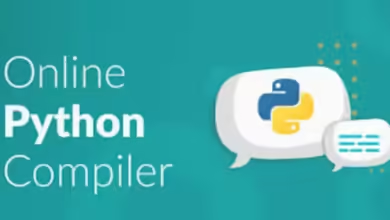How to Boost Your Skills Quickly: Tips for Fast Learners 2024

It’s more important than ever to quickly acquire new Boost Your Skills in the fast-paced world of today. Being a quick learner can be very beneficial if you want to advance in your work, take up a new hobby, or just improve your personal growth. However, how can one pick up new abilities fast without becoming overwhelmed? This post offers helpful hints and techniques to increase your learning effectiveness and develop into a fast learner.
1. Introduction
Acquiring new abilities rapidly can frequently be overwhelming and counterproductive, akin to trying to drink from a fire hose. On the other hand, anyone can increase their learning efficiency and speed by putting the right strategies in place. With the help of this guide, you will learn tried-and-true methods that quick learners use to pick up new skills and knowledge quickly.
2. Set Clear Goals

Setting definite, attainable goals is essential before learning any new skill.You’ll feel very purposeful and directed if you can clearly see your objectives. As a guide, goals assist you in concentrating your efforts and tracking your advancement. For instance, try “learn to play five chords in two weeks” as an alternative to a general goal like “learn to play guitar.”
3. Focus on the Fundamentals
It can be tempting to dive right into complex subjects when first starting out, but this strategy frequently ends in frustration. Quick learners are aware of how crucial it is to first grasp the fundamentals. It is easier to understand complex concepts later on when a solid foundation has been built. Consider it like building a house: the entire structure is at risk if the foundation is faulty.
4. Use Active Learning Techniques

While reading and listening are examples of passive learning, they are not always effective in helping people retain information over time. Your brain is more fully engaged when you use active learning strategies, such as mentoring others, practicing, or applying the knowledge in practical situations. The knowledge becomes more embedded the more you use it on a regular basis.
5. Practice Consistently
The secret to learning new skills is consistency. Frequent, brief practice sessions are far more productive than one-time, intense ones. Through a process called “distributed practice,” your brain becomes more adept at processing and remembering information over time. Practice on a regular basis whether you’re learning a language, an instrument, or a technical skill.
6. Embrace the Power of Chunking
Chunking is the process of dividing complicated information into more digestible chunks. It is simpler to comprehend and retain new information when using this method. For instance, instead of attempting to memorize lengthy sentences when learning a new language, concentrate on mastering a few words or phrases at a time.
7. Apply the 80/20 Rule

According to the Pareto Principle, also known as the 80/20 Rule, 20% of your efforts should yield 80% of your results. Prioritize learning the most important components of the skill you’re attempting to acquire. Focusing on the fundamentals will enable you to pick up proficiency fast and expand from there.
8. Leverage Technology and Resources
Many resources are easily available at your fingertips in the current digital era. To improve your learning process, make use of tools, apps, and online courses. Online resources such as YouTube, Coursera, and Khan Academy provide an abundance of knowledge on almost any subject. Use these resources to enhance your learning without hesitation.
9. Learn from Mistakes

Making errors is an essential component of learning. Instead of fearing failure, see it as an opportunity to learn important lessons. Consider what went wrong and come up with improvements for your strategy. Errors are not seen as failures but rather as learning opportunities by quick learners.
10. Surround Yourself with Experts
Learning from those who have already mastered a skill is one of the fastest ways to advance your own abilities. Get in the company of professionals, whether by networking, cooperation, or mentoring. You may be able to learn shortcuts and techniques from their experiences and insights that you might not find on your own.
11. Stay Curious and Open-Minded
Learning is driven primarily by curiosity. Always be willing to consider alternative viewpoints and keep an open mind. Your curiosity will drive you to learn more and help you pick up new skills more quickly.
12. Maintain a Growth Mindset
 The key to learning quickly is having faith in your capacity to get better. Perseverance is fueled by a growth mindset, which is the conviction that abilities and intelligence can be developed via commitment and effort. When one adopts this mentality, obstacles become chances for personal development.
The key to learning quickly is having faith in your capacity to get better. Perseverance is fueled by a growth mindset, which is the conviction that abilities and intelligence can be developed via commitment and effort. When one adopts this mentality, obstacles become chances for personal development.
13. Conclusion
Adopting the appropriate techniques and mindset is more important for becoming a quick learner than having natural talent. You can acquire new skills fast and efficiently by establishing clear objectives, concentrating on the principles, practicing frequently, and accepting failure. In an ever-evolving world, these strategies will help you stay ahead, whether for personal or professional development.
14. FAQs
1. What is the best way to start learning a new skill quickly?
The best way to start is by setting clear, specific goals and focusing on mastering the basics before moving on to more advanced topics.
2. How can I stay motivated while learning a new skill?
Maintain your motivation by establishing small, attainable goals and taking time to celebrate your achievements as you progress. Consistent practice and curiosity also help maintain motivation.
3. Why is it important to make mistakes when learning?
Mistakes provide valuable learning opportunities, helping you identify areas for improvement and develop better techniques over time.
4. How can technology help me learn faster?
Technology offers access to a vast array of resources, courses, and tools that can supplement your learning and provide interactive ways to practice new skills.
5. What role does mindset play in learning new skills?
A growth mindset is crucial, as it encourages perseverance and resilience. Believing that you can improve with effort makes you more likely to overcome challenges and continue learning.






One Comment